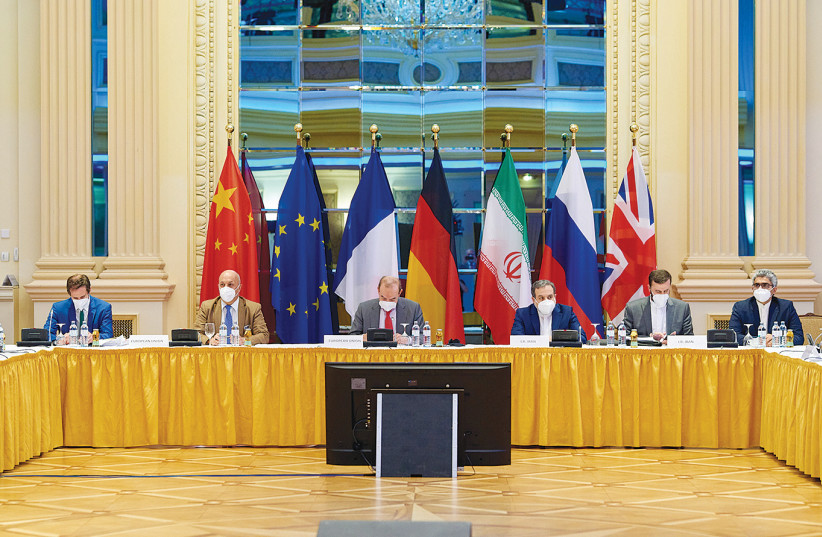Iran said on Monday removal of US sanctions is Tehran's red line in talks with world powers in Vienna to revive a 2015 nuclear deal, an Iranian foreign ministry spokesman told a news conference, adding that talks will resume on Tuesday.
On Friday, the United States restored sanctions waivers allowing international nuclear cooperation with Iran on projects designed to make it harder for Iran's nuclear sites to be used to develop weapons, although a senior State Department official said that was not a signal Washington was on the verge of reaching an agreement.
"The issue of removal of sanctions and Iran benefiting from it is Iran's red line in the talks," Saeed Khatibzadeh said. "If the US returns to Vienna with a political decision and a specific agenda ... to remove the sanctions, then surely it will be possible to reach a deal quickly."
Iran's lead nuclear negotiator Ali Bagheri Kani would return to Vienna on Tuesday, Khatibzadeh said.
"Washington has decided to take a step which has no impact on Iran's economic situation ... a responsible (US) government should return to the deal and fulfill its obligations," he said.
Iran also said that reviving Tehran's 2015 nuclear deal with world powers depended on whether the United States was ready to make a political decision.

When asked if the talks in Vienna would be successful, Khatibzadeh said: "It's too early to predict the result of the talks ... but Tehran's red lines are clear."
Iran's Foreign Minister Hossein Amirabdollahian on Sunday described the US move as "good but insufficient."
Iran, which denies ever seeking a nuclear bomb, has gradually violated the nuclear limits of the nuclear pact in reaction to then-US President Donald Trump's 2018 withdrawal from the pact between Tehran and six powers and reimposing of crippling sanctions on Iran.
Tehran and Washington have held eight rounds of indirect talks since April in Vienna aimed at reinstating the deal, under which Iran agreed to curb its nuclear program in exchange for the removal of international sanctions that have squeezed its oil exports.
The talks paused on January 28 as top negotiators returned to their respective capitals for consultations. US Special Envoy for Iran Robert Malley on Sunday said he would soon return to Vienna, insisting the pact could still be revived.
Khatibzadeh said Iran's lead nuclear negotiator Ali Bagheri Kani would return to Vienna on Tuesday when the talks will resume.
Iran has gradually violated nuclear limits of the nuclear pact in reaction to then-US President Donald Trump's 2018 withdrawal from the agreement between Tehran and six powers and reimposing of crippling sanctions on Iran.
Iran insists on the immediate removal of all Trump-era sanctions in a verifiable process. Washington has said it would remove curbs inconsistent with the 2015 pact if Iran resumed compliance with the deal, implying it would leave in place others such as those imposed under terrorism or human rights measures.
Khatibzadeh rejected warnings by Western officials that time is running out to resurrect the pact, given Tehran's nuclear advances.
"We do not consider any fake deadlines ... This round can be the last round if other parties fulfill their obligations and provide guarantees to Iran," he said.
